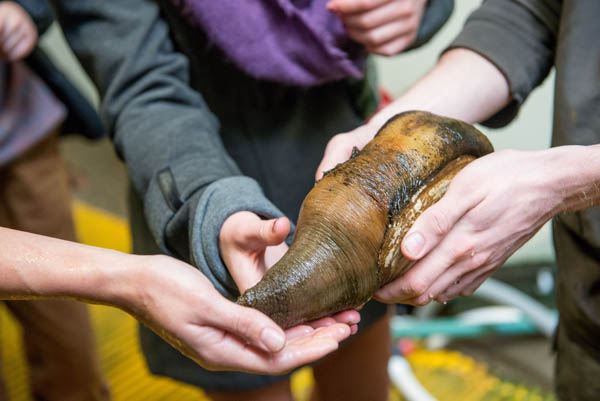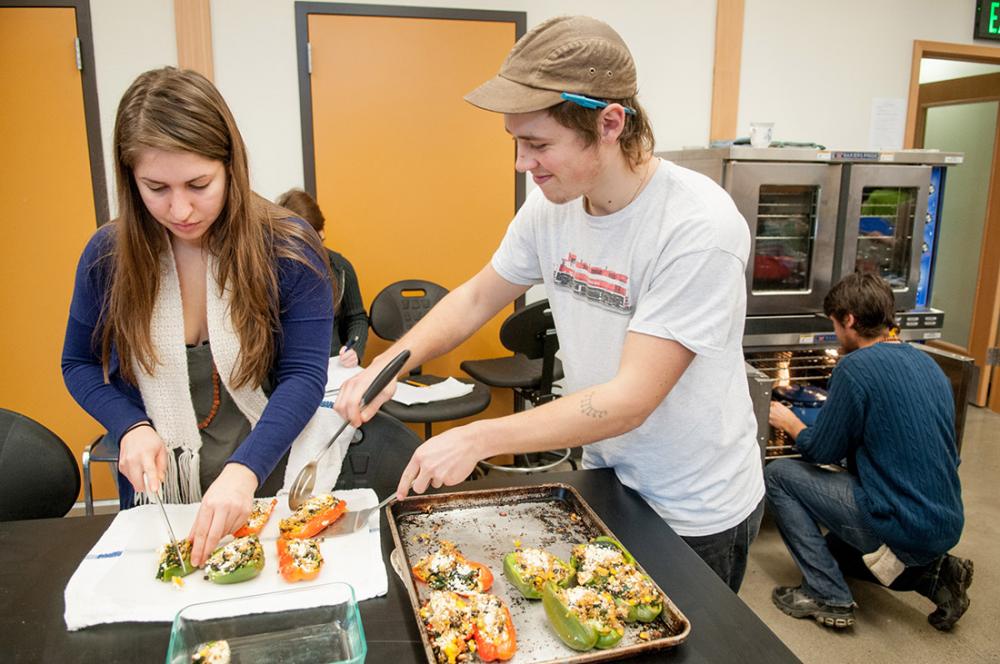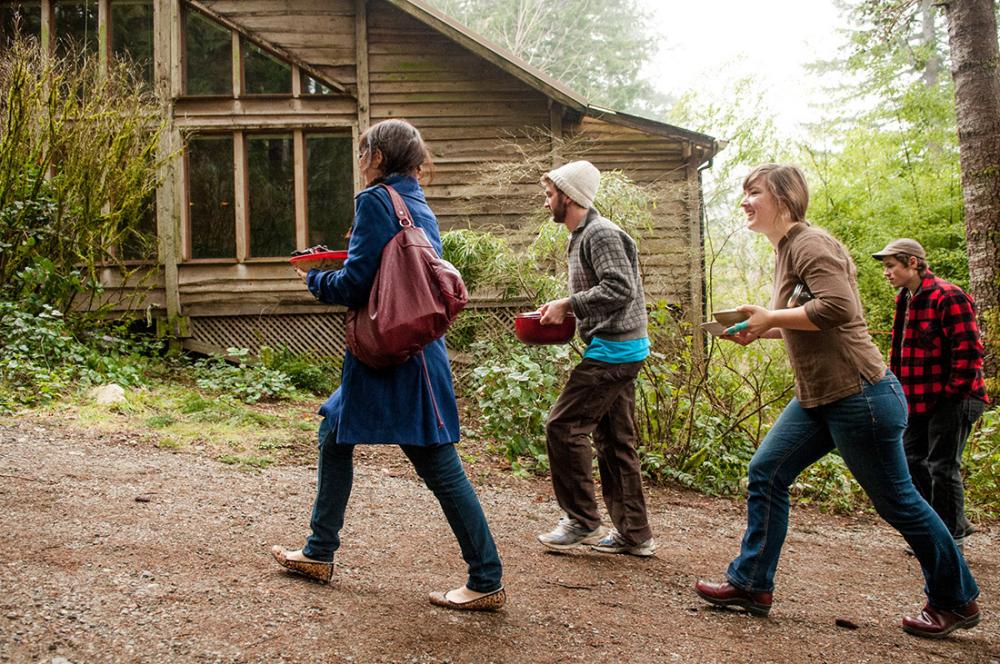Evergreen State College: Food, Health, and Sustainability (BS)
- Type:
- Food Security
- Categories:
- Undergraduate Degree
- Keywords:
- General info
-
Throughout history, food and cooking have not only been essential for human sustenance, but have played a central role in the economic and cultural life of civilizations. This interdisciplinary exploration of food will take a broad ecological systems approach as it examines the biology and chemistry of food while also incorporating political, historical, and anthropological perspectives. Topics will span a broad range of scale, from ecological agriculture to molecular structure, including sustainable production, the coevolution of humans and food, the connection between food and medicine, as well as the transformation of food through the processes of cooking and fermentation.
Students will directly apply major concepts learned in lectures to experiments in the laboratory and kitchen. Field trips will provide opportunities for observing food production and processing in the local community. Program themes will be reinforced in problem-solving workshop sessions and seminar discussions focused on topics addressed by such authors as Michael Pollan, Harold McGee, Gary Paul Nabhan, Sidney Mintz, and Sandor Katz.
Fall quarter we will introduce the concept of food systems and analyze conventional and sustainable agricultural practices. We will examine the botany of vegetables, fruits, seed grains, and legumes that constitute most of the global food supply. In parallel, we will study the genetic principles of plant and animal breeding and the role of evolution in the selection of plant and animal species used as food by different human populations. We will consider concepts in molecular biology that will allow us to understand and assess genetically modified crops.
Winter quarter we shift our attention to cooking and nutrition. We will explore the biochemistry of food, beginning with basic chemical concepts, before moving on to the structure of proteins, carbohydrates, and fats. We will study meat, milk, eggs, vegetables, and cereal doughs and examine what happens at a biochemical level during the process of cooking and baking. We will explore how our bodies digest and recover nutrients, and consider the physiological roles of vitamins and antioxidants, as well as the complex relationship between diet, disease, and genetics. Finally, we will study the physiology of taste and smell, critical for the appreciation of food.
Spring quarter we will examine the relationship between food and microbes from several perspectives. We will produce specific fermented foods while studying underlying biochemical reactions. We will also consider topics in microbiology as they relate to food safety and food preservation, and focus on the human microbiome, including specific interactions between particular microbes and the human immune system.





Evergreen State College: Food, Health, and Sustainability (BS)
Food Security